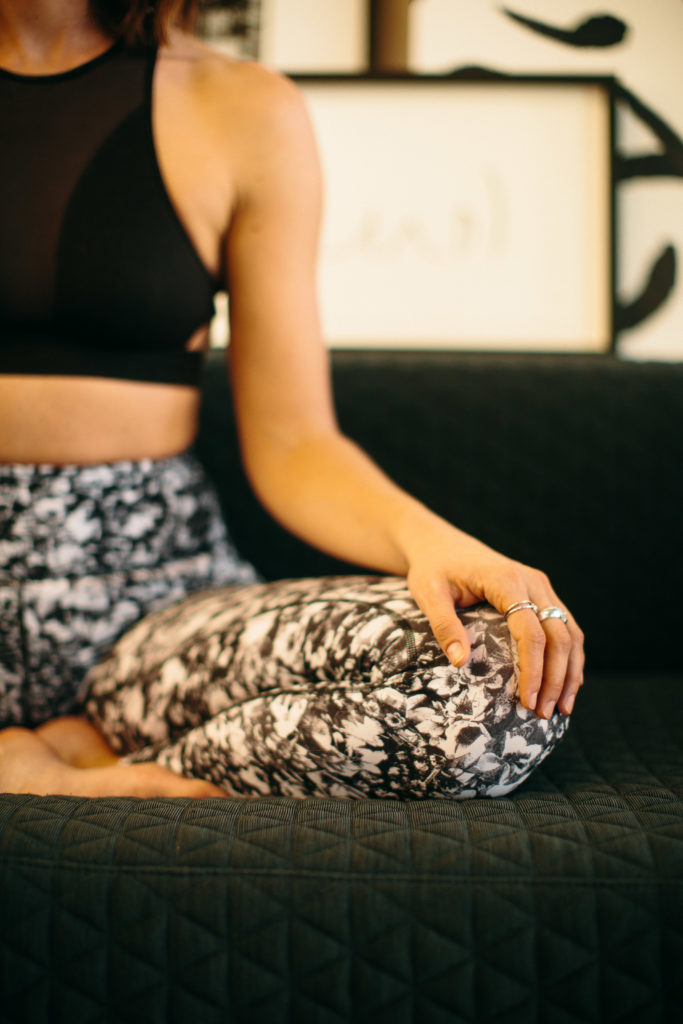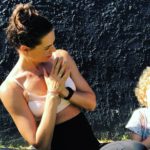It’s a word that we hear a lot – stress – it’s peppered into conversations; used lightly and often to describe a state of being that is somewhat fraught, frazzled and overwhelmed.
It gets a bad rap when in fact, stress is the body’s normal reaction to any shift that requires a physical, mental, emotional adjustment or response. Stress is simply a part of life.
Stress has been a necessary element of our evolution; which is great because it can’t be avoided. Depending on our culture, country, how and where we were brought up, our family situations – each day we’re exposed to different kinds of stressors. We’re hit from all angles; our jobs, our children, relationships, the food we choose to eat, what we drink, how much we drink, how hard we exercise, chemicals, pollution, illness…the list is endless.
Our relationship with stress is individual, personal and relative. Something that might be exceptionally stressful for one person, could be a walk in the park for another. One day we might be able to sail through an intense experience, when the next day it might just be too much for us to cope with.
As humans, we’re designed to react to stress and it can be positive; keeping us alert, focused, and ready to avoid danger. It becomes negative when we face continuous challenges without relief or relaxation between stressors – when our ‘fight or flight- response is perpetually switched on. As a result, we become overworked, and stress-related tension builds. We find we are moving through life with a short fuse, our reactions on a hair-trigger, instead of having the space to respond or pause before we make a choice or say something we regret. We end up exhausted, burnt out or even chronically ill.
And perhaps the greatest stressor of all, isn’t something outside us, but inside us – our thoughts. More accurately it’s the practiced and habitual responses we have to those thoughts. Ninety-nine percent of the time these are ruminations on the past or worries about possible future events that may not even happen, but still trigger a physical stress response overloading us with adrenaline and cortisol.
The mind-body loop is a tricky one. Body has a response, mind has a thought about that response or ‘feeling’, mind goes into overdrive, exacerbating the physical response. And we get stuck, unable to short circuit the monkey mind and create space between the thought and it’s reaction. Like everything, in this world, our thoughts have a frequency so when the mind thinks, every cell in the body thinks too.
When we haven’t been taught how to properly relax and recharge or how to give the mind a break, stress accumulates in our system, wearing down the body and is at the heart of most illness and disease.
For many of us, the ability to truly relax has been lost or we choose activities that in fact, cause more strain on the nervous system. How many times have you gone on holiday and only been able to truly ‘let go’ after a few days. We’re like coiled springs, wound so tight that unraveling is a complicated and lengthy process.
For many of us, we do things we’ve been conditioned to believe will help relax us or ‘seem’ to soothe – a wine or three in the evening; holidays where we eat poorly and party all night; intense physical exercise; mindlessly watching poor quality television – all overloading and overworking an already compromised system. It’s the bi-product of an action driven world, with an addiction to ‘doing’ and ‘moving’ and ‘numbing’ and a complete aversion to quiet, stillness and tuning into what’s really going on for us.
As a meditation coach, most of my students come to me to learn meditation because they want to be able to deal with stress ‘better’. They crave calm and clarity. They want to get a handle on their lives, and they’ve come to the conclusion that in some way, shape or form, stress is negatively affecting their health, relationships, sleep, work-life balance, or potentially all of the above.
In our quest for greater calm we need to think of ourselves as walking, talking batteries, batteries that need recharging.
And how do we best recharge ourselves? We must do things that create space, that allow us to physically relax and move the mind into a more meditative state.
True replenishment is a personal thing and everyone will have different ways to refill their cup, but the most profoundly beneficial practices usually always involve peace and quiet, calming the mind and reconnecting with ourselves and often nature.
These could be:
- Gentle walks outside
- Being near or in the ocean
- A daily meditation practice
- Restorative yoga practices like Yin yoga
- Tai Chi
- Massage
- Good quality sleep
- Reading
- Connection with loved ones
At the core of this is strengthening our mind-body connection and understanding just how to un-stress the mind and the body. To do this we must check in and tune in daily with ourselves, to discover what we need. If we do this, we’re better able to intuit when enough is enough, when we can push ourselves and when we need a break.
Life is a balance, it’s the constant evaluation of what we need and what to let go of, when to be still and when to move and each time we listen, our body and mind learns to trust us a little bit more.
Keep an eye out for part two of ‘The Key To Calm’, in which Claire will continue with a deeper look into calming the mind and body through yoga, meditation and mindfulness practices.
Claire Robbie has been teaching yoga and meditation for over 10 years. Studying with some of the world’s leading teachers, Claire combines her own learning with personal experiences from her own non-negotiable practice and teaches from the heart in an accessible and practical way. Believing it to be the foundational to living a happy, content and peaceful life, Claire is passionate about making meditation an integral and ‘normal’ part of our community. She is also the founder of the social movement No Beers? Who Cares! an initiative shifting our drinking culture and attitudes towards alcohol.
If you would like to attend Claire’s Meditation course, the next will be held on September 8th and 9th at her studio, 216 Jervois Road, Herne Bay.
Always read the label and use as directed. Vitamins and minerals are supplementary to and not a replacement for a balanced diet. If symptoms persist, see your healthcare professional. Wondermins, Auckland. MR5767

